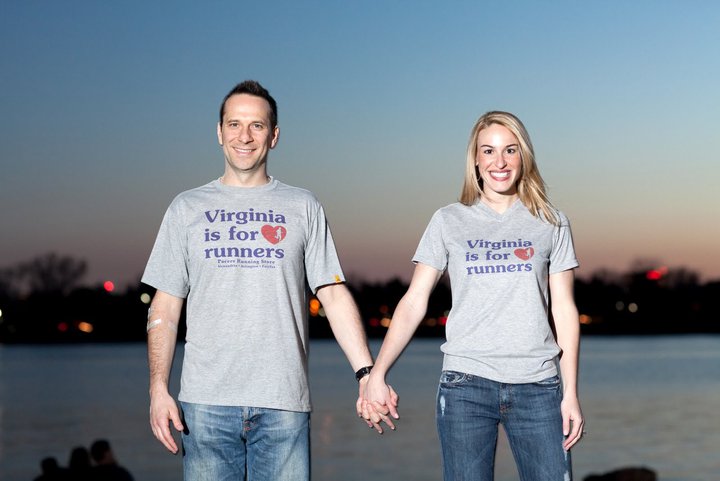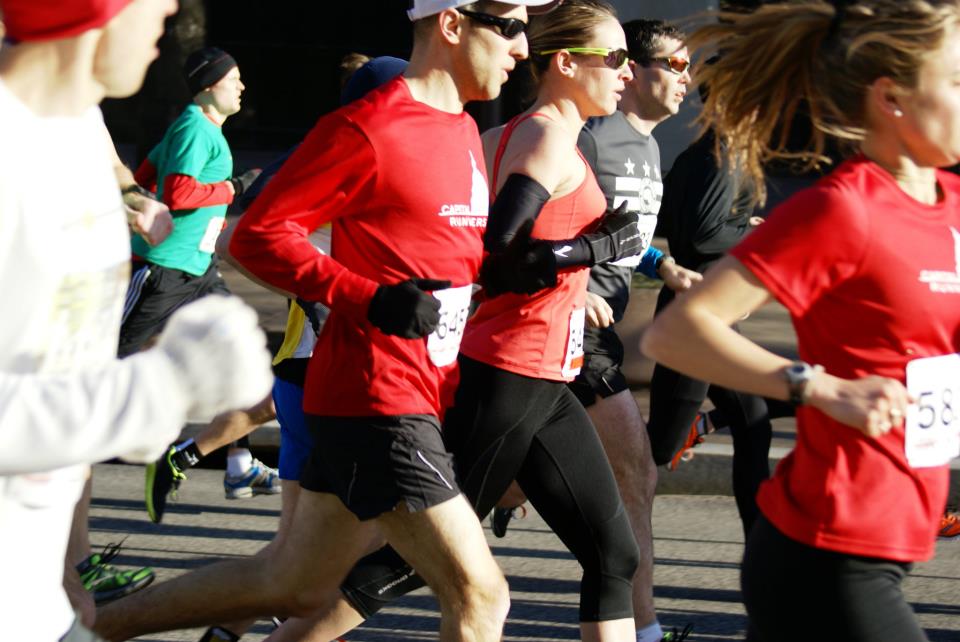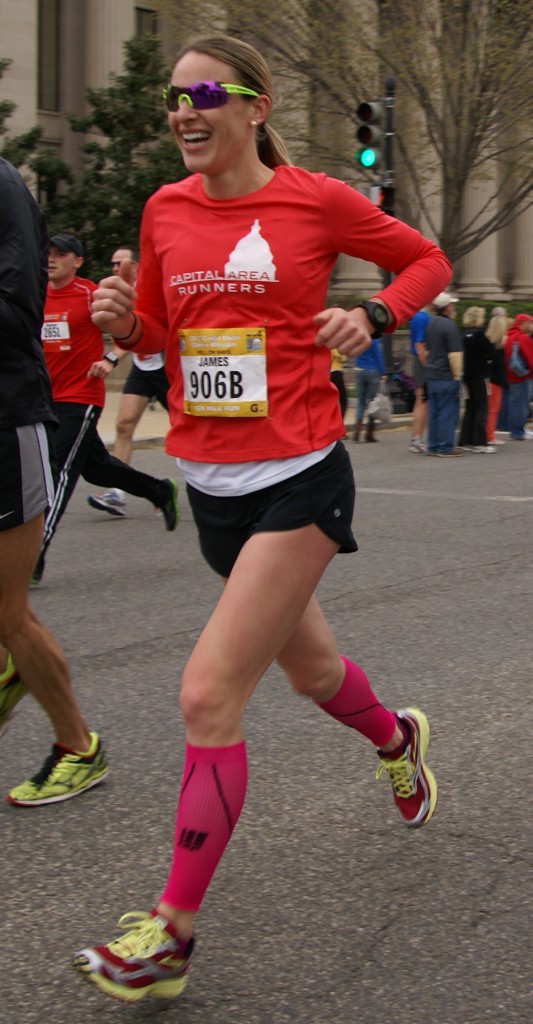So even though just twelve hours ago I was walking to Fitness Magazine’s Meet & Tweet event, I’m now sitting in a Cincinnati hotel room.

Remember when I said the next few weeks were going to be travel whirlwinds? Yup, I wasn’t being dramatic, believe it or not.
While I was on the plane this evening, I took advantage of the peace and solitude to focus on some much needed blog work. I’m embarrassed that I’ve fallen so behind on blog emails, comments and projects. When I was searching my inbox I happened to come across the very first Marathon+Moderation guest post which was submitted. Good thing I came across it or I would have forgotten that its’ one year anniversary is only 10 days away!
A year ago I was just starting to think about the training cycle for my second marathon. At that point, I was without a coach and looking to learn from my peers who inspire me each weekend. A year later, over 40 bloggers and readers have shared their marathon stories. Some have been about new PRs while others have been about having the courage to DNF or listen to your body.
While each person’s story is very different, I’ve loved reading each of them! In honor of the year anniversary, I thought I’d capture them all here, on one page, for your reference. This post will become the Marathons+Moderation page on my site moving forward so you can easily reference your favorite tips and tricks.
It’s my goal to keep bringing you all guest posts each Wednesday from your favorite runners. Until next week, here is the year in review. If you want to share your marathon story, or have a runner who you’d like to see featured, let me know in the comments or send me an email!

Marathons+Moderation Guest Post 1 from Ellen at Keeping the Pace
Marathons+Moderation Guest Post 2 from Emily at Sweat Once a Day
Marathons+Moderation Guest Post 3
Marathons+Moderation Guest Post 4
Marathons+Moderation Guest Post 5
Marathons+Moderation Guest Post 6
Marathons+Moderation Guest Post 7
Marathons+Moderation Guest Post 8
Marathons+Moderation Guest Post 9
Marathons+Moderation Guest Post 10
Marathons+Moderation Guest Post 11
Marathons+Moderation Guest Post 12
Marathons+Moderation Guest Post 13
Marathons+Moderation Guest Post 14
Marathons+Moderation Guest Post 15
Marathons+Moderation Guest Post 16 from Ryan
Marathons+Moderation Guest Post 17 from Kali
Marathons+Moderation Guest Post 18 from Hot Bird Running
Marathons+Moderation Guest Post 19 from Hot Bird Running
Marathons+Moderation Guest Post 20 from Robin
Marathons+Moderation Guest Post 21 from Shannon of Tropical Eats
Marathons+Moderation Guest Post 22 from Heather of Dietician on the Run
Marathons+Moderation Guest Post 23 from Victoria of The District Chocoholic
Marathons+Moderation Guest Post 24 from Ali of Ali Runs
Marathons+Moderation Guest Post 25 from Stephanie of Run for Fun
Marathons+Moderation Guest Post 26 from Melinda
Marathons+Moderation Guest Post 27 from Michele of NYC Running Mama
Marathon+Moderation Guest Post 28 from Jocelyn of Enthusiastic Runner
Marathons+Moderation Guest Post 29 from Laura
Marathons+Moderation Guest Post 30 from Elizabeth of On Tap for Today
Marathons+Moderation Guest Post 31 from Tina of Carrots n Cake
Marathons+Moderation Guest Post 32 from Meghann of Meals and Miles
Marathons+Moderation Guest Post 33 from Dorothy of Mile Posts
Marathons+Moderation Guest Post 34 from Life Is A Run
Marathons+Moderation Guest Post 35 from Run Stronger Every Day
Marathons+Moderation Guest Post 36 from Sassphalt Runner
Marathons+Moderation Guest Post 37 from Melody


 I was so excited when Ashley asked me to write a guest post for the Marathon + Moderation series as I’ve spent the better part of the past year shifting my mindset about running from 100% outcome-focused (i.e.
I was so excited when Ashley asked me to write a guest post for the Marathon + Moderation series as I’ve spent the better part of the past year shifting my mindset about running from 100% outcome-focused (i.e. 




